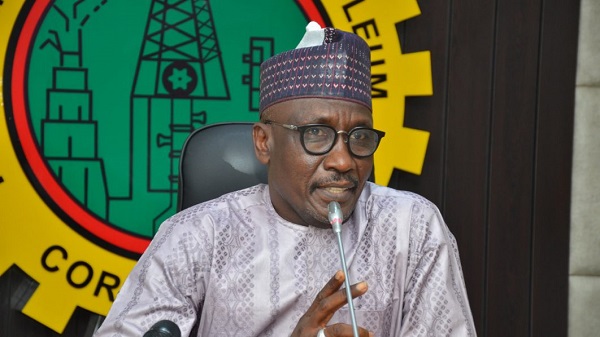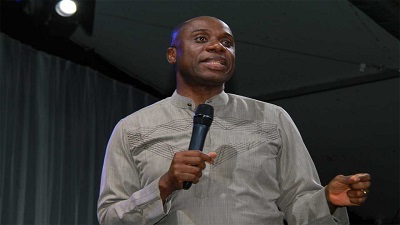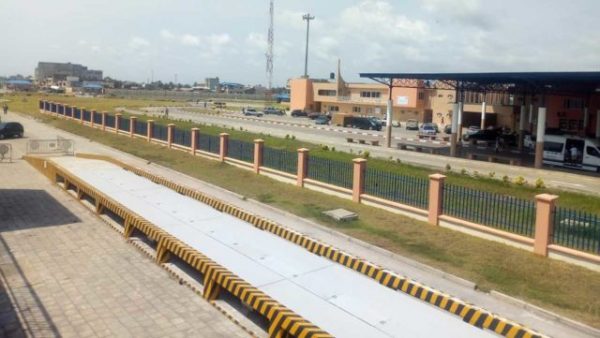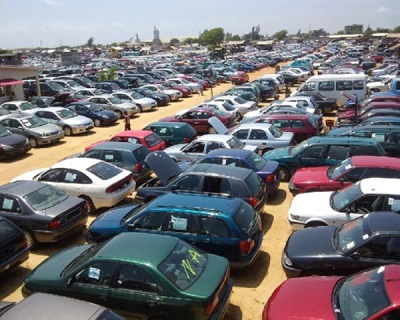Nigerian Fleet Implementation: NNPC Insists On Capacity To Lift Crude Oil
By Frank Odinukaeze

· Shippers’ association proffers quick fixes for ease of business in ports
· NFIC Committee report seeks review of trade policies
With the report of the Nigerian Fleet Implementation Committee(NFIC) anchored on crude oil affreightment opportunity for a successful indigenous fleet operation, the Nigerian National Petroleum Corporation(NNPC) Limited has reemphasized the need for fleet operators in whatever guise to build capacity and competitive strategy in the business.
The NFIC had last week submitted interim report on the effective implementation of Nigerian fleet to the Minister of Transportation, Engr. Muazu Sambo, who sought to know the position of the NNPC on their brief.” I don’t know whether in the course of the Committee’s consultations with other stakeholders, you were able to have some conversations with the NNPC because, if NNPC can give 100 per cent support, this matter can be closed in two months.”
In a phone conversation with a source in the Corporation, he said,” I applaud the work of the Committee ,however, my personal view which is not different from the position of the establishment over the years is that there has to be a robust capacity to lift crude, there has to be a strategy. I have had cause to discuss with some of the indigenous operators in the maritime sector and there has been a couple of interface with some of the fleet implementation committee members.”
Reminded of the Local Content Act which confers the privilege of crude affreightment on indigenous players, the source said “ Local content does not presuppose compromise in standards. They need to put their house in order”.
However, while submitting the interim report, the representative of the Chairman of NFIC, Mr. Aminu Umar, Managing Director, Sea Transport Group had said, “ The work is still ongoing and the goal of creating an enabling environment for the growth of sustainable Nigerian fleet will be achieved in due course.
“There were challenges that impeded the quick realization of the project as earlier envisaged. Shipping is international and competitive in nature and Nigeria cannot operate in isolation, hence the need for the operating environment to be similar to what obtains elsewhere. This has been a major challenge to the growth of the sector in Nigeria. Review of certain trade policies, access to finance and technical as well as human capacity are issues that need to be resolved”, the Chairman added.
Recall that the Singaporean shipping giant, Pacific International Lines(PIL) had opted out of the initial national fleet agreement of 40 -60 percent ratio. PIL had gone into the arrangement believing that government cargo, especially crude oil lifting was guaranteed.
The Singaporean shipping firm became further disappointed when the indigenous ship owners could not raise their 60 per cent counterpart finance to fly the business as consummated in Singapore. Former Minister of Transportation, Amaechi led the committee members to sign the Memorandum of Understanding(MoU). Amaechi who had promised to deliver a functional national shipping fleet in one year then became disenchanted with the workings in the Nigerian shipping industry.
Meanwhile, worried by the rising cost of doing business in the Nigerian Ports coupled with poor access roads that hinder easy movement of goods out of the ports ,the Shippers’ Association Lagos State (SALS) has suggested quick measures to tackle the challenges.
President of the foremost shippers’ association, Evangelist Leonard Ezeani Ogamba stated this in an exclusive interview with MMS Plus, recently.
He noted that high rate of inflation as could be seen from the inflation index has further made cost of doing business in Nigerian ports rather too expensive.
Ogamba opined that lack of multimodal transport infrastructure is one the critical draw backs in the movement of goods out of the ports and is a contributory factor to the ever increasing cost of doing business in the ports.
According to Ogamba,, “Transport is key determinant of price of goods and services. I suggest short time fixes and long time fixes.
On short time remedies, government at both states and federal should collaborate to create cargo lane just like BRT in Lagos particularly on roads to and from the ports. The reason being that most truck will have easy access to and from the ports. This will eliminate avoidable additional payments of rent, demurrage and multiple road check points by agencies of government’, he said.
He said the second remedy is that,” There should be timeline for delivery of cargo from the ports and to the ports for example
,export cargo entry as well as return of empty containers. I am of the opinion that from 11pm to 4pm should be as a matter of policy the time for the movement of containers out and from the port without prejudice to insecurity which can be checked by installing security cameras along the corridors where the containers will ply”
Ogamba suggested the Nigerian Shippers Council (NSC), the port economic regulator should collaborate with police, army, Navy, Federal Road Safety Corp(FRSC), among others, to enforce Decree (Act). 66 of 1999 which provides that the government agencies should be in the ports while dismantling all the check points contravening trucks loaded with containers”
He said agencies like the Nigeria Customs Service( NCS), port police,,Nigeria Immigration Service(NIS) are the only agencies without prejudice to any other agency and inspection agents who are now moribund that should be in the ports.
He suggested that containers already inspected at inland dry ports by relevant agencies of government ought not to be subjected to another round of inspection at the ports of loading
For Long time fixes,Ogamba suggested that there should be rail interface from the seaport to inland dry points.” It’s expedient to do and failure will cause inland dry ports to operate below capacity which is counter- productive” he said.







